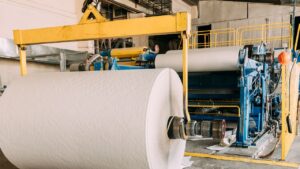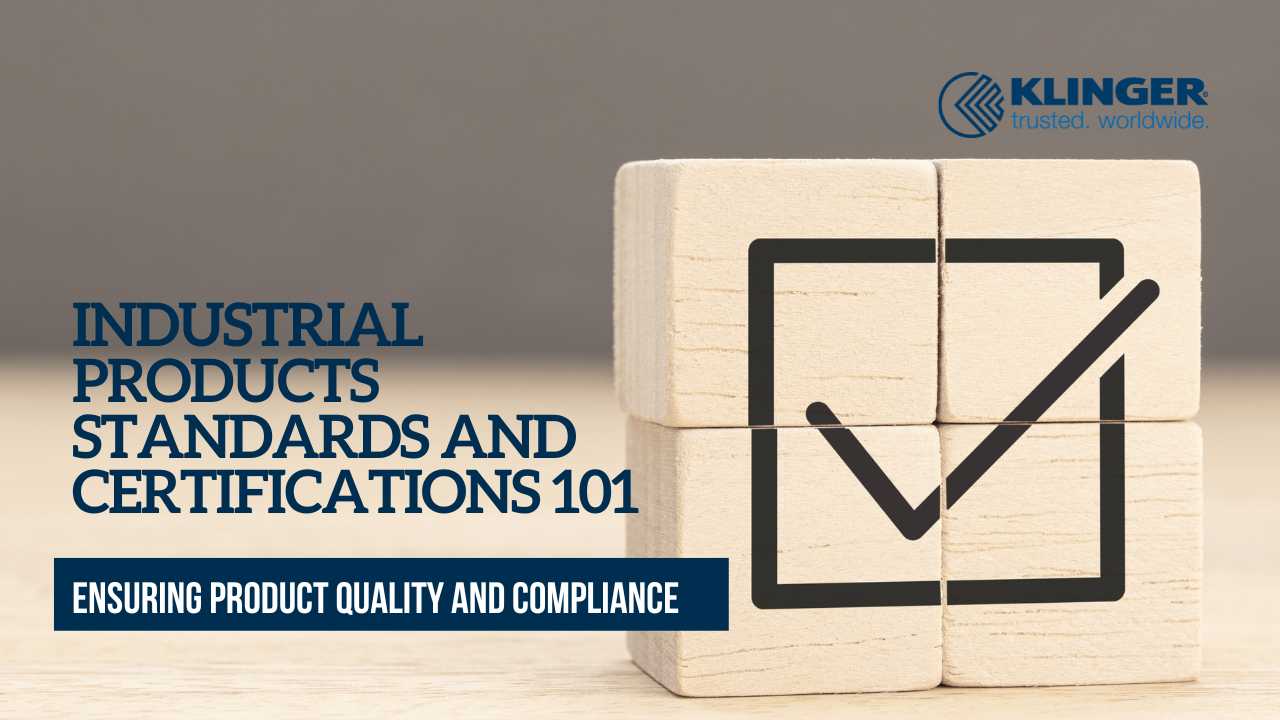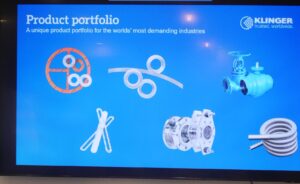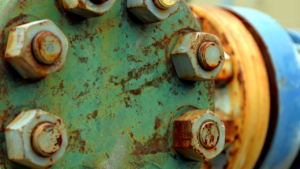
- KLINGER Australia
- Blogs
- Industrial Products Standards and Certifications 101

At KLINGER, we recognise the importance of product standards in guaranteeing the quality, safety, and market acceptance of industrial products. These standards not only promote compatibility and integration but also help businesses avoid potential legal and regulatory issues. In this blog post, we aim to educate and build awareness about compliance, specifically in relation to sealing products.
Industry Standards: Creating a Common Language for Quality
Product standards are established as collective agreements by industry bodies. They define common technical requirements and guidelines for manufacturers to follow, creating a universal language for product production. Compliance with these standards streamlines market access and product acceptance in different countries and regions, facilitating seamless international trade.
For instance, let’s consider gaskets as an example. Manufacturers typically adhere to standards set by widely recognised organisations, including:
- ASME (The American Society of Mechanical Engineers)
- ASTM (The American Society for Testing and Materials)
- API (American Petroleum Institute)
- BS (British Standards)
- AS (Australian Standards)
- JIS (Japanese Industrial Standards)
- DIN (Deutsches Institut für Normung or German Institute for Standardisation)
Industry-Specific Certifications: Meeting Unique Requirements
Certain industries have stringent regulatory requirements, leading to the establishment of industry-specific certifications and standards. Complying with these standards is essential for suppliers and contractors to meet the unique demands and requirements of their clients or industries. Let’s revisit the example of gaskets to explore relevant certifications and standards:
- FDA Compliance: Food and Drug Administration (FDA) compliant gaskets are specifically designed and manufactured to meet the requirements for applications involving direct contact with food, beverages, pharmaceuticals, or medical devices. These gaskets are made from materials approved for food-grade use and pose no health risks.
- NSF Certification: The NSF is an independent organisation that provides sanitisation certification for products meeting stringent safety and quality standards. NSF-certified gaskets are suitable for applications in food processing, water treatment, and other industries where hygiene and cleanliness are critical.
- USP Class and ISO-10993.: Gaskets complying with the United States Pharmacopeia (USP) Class VI standard or the more rigorous standard for the biological evaluation of medical devices ISO-10993. are suitable for use in pharmaceutical and biotechnology applications. These certifications ensure that the gasket materials are non-toxic and biocompatible.
- WRAS Approval: Gaskets with WRAS (Water Regulations Advisory Scheme) approval are commonly used in water supply systems. WRAS-approved gaskets comply with regulations and standards for preventing water contamination, providing a reliable seal. Different countries may have specific approvals required for potable water applications, such as AS/NZS 4020 in Australia and New Zealand.
- Ship Classifications: Gaskets used in maritime and shipbuilding applications may need to meet specific industry standards and regulations set by classification societies like the International Association of Classification Societies (IACS), the American Bureau of Shipping (ABS), Lloyds Register, or the International Maritime Organization (IMO).
In addition to industry-specific certifications, large corporations and organisations often establish their own set of standards to ensure consistency and compatibility within their supply chains or specific projects.
Meeting Industry Requirements and Specific Demands
When selecting industrial products, it is crucial to partner with experienced manufacturers and reputable suppliers.
Genuine Compliance: Reputable manufacturers prioritise compliance and adhere to industry standards and certifications. They have a comprehensive understanding of the regulations and requirements applicable to their products. By sourcing from these manufacturers, you can have confidence in the genuineness and legitimacy of the compliance claims associated with the products you acquire. This helps mitigate the risk of using non-compliant or counterfeit products that could lead to safety hazards, performance issues and legal complications.
Expertise, Recommendations and Documentation: These professionals possess a deep understanding of the challenges and requirements of various industries. They can offer recommendations to ensure optimal product fit and maintain records on the traceability of their products, providing proper documentation to validate quality, compliance and performance.
Customisation: Experienced manufacturers or suppliers also have the capability to offer customised products. They can collaborate closely with you to understand your specific needs, such as unique sizes, shapes, or material requirements, and provide tailored solutions.


